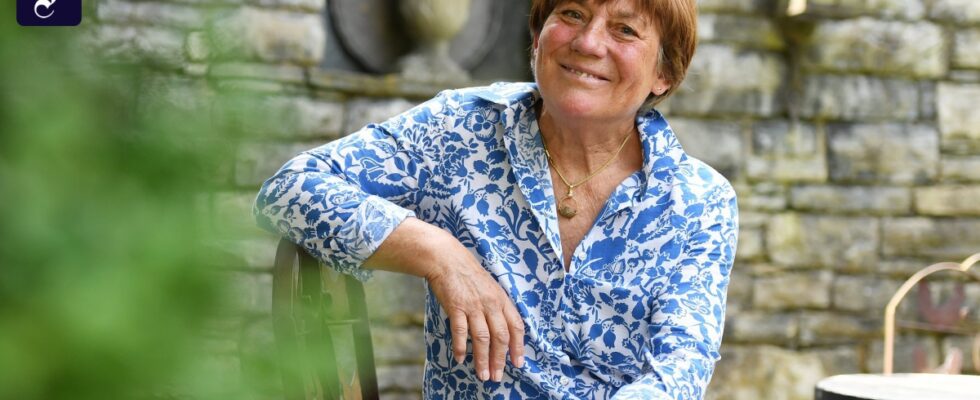Mith her victories at the 1976 Olympic Games, “Gold-Rosi” enchanted the whole of winter sports in Germany. Back then in Innsbruck, Rosi Mittermaier organized one of the biggest festivals in the history of German alpine sports. The former ski racer died on Wednesday at the age of 72, her family announced on Thursday. Ski star Felix Neureuther’s mother fell asleep peacefully with the family after a serious illness.
The German sports world reacted dismayed to the news of the death of the popular ski icon. “This is very sad news. Thank you, dear Rosi Mittermaier, for the enthusiasm that you triggered in so many people and for your commitment far beyond sport! The gold medals were one of the most formative memories of winter sports in my youth,” wrote the President of the German Olympic Sports Confederation, Thomas Weikert, on Twitter.
Bavaria’s Prime Minister Markus Söder (CSU) wrote: “All over Bavaria we mourn our Gold-Rosi, an ambassador of our country in the world. Not only was she a successful athlete, she was a role model for all of us. We will all miss her commitment to her fellow human beings, her big heart and her unforgettable devotion”.
For Söder, the two-time Olympic champion was a prime example of “how you can remain down-to-earth and approachable despite breathtaking success. She stood in an exemplary way for love of homeland, sportsmanship, tolerance and fair play,” the CSU politician continued.
“Bathtubs full of flowers”
Mittermaier loved skiing like no other. “For me, pure skiing is still the most beautiful thing there is and where my heart will always rise,” said the alpine icon once.
In 1976 she reached the peak of her sporting career, winning three medals at the Olympics, four at the World Championships and the overall World Cup. “Gold-Rosi” was born. “In the Olympic village I got bathtubs full of flowers. It was only later that I realized what had happened there,” Mittermaier recalled in 2020.
Mourning for “Gold-Rosi”
:
Pictures from Rosi Mittermaier’s life
Suddenly Mittermaier was a pop star. “Rosi” was recognized everywhere. Too much hustle and bustle for the down-to-earth Upper Bavarian from tranquil Reit im Winkl. “In my parents’ house there was a whole room full of mail and packages. The postman told us that 27,000 letters came in one month, he went totally crazy,” Mittermaier said in 2020 on the occasion of her 70th birthday.
At its peak, Mittermaier ended her career in 1976 at the age of only 25. Carefree skiing was simply no longer possible. Privately, she led an unexcited life, far removed from glitz and glamour. The Upper Bavarian never regretted this decision, even if it felt strange at the beginning. “Suddenly I was having dinner with strangers, older people like company bosses at trade fairs, in sports stores or with important customers. And that worldwide,” said Mittermaier.
The Bavarian grew up at the Winklmoosalm, where her parents had an inn with a ski school. At the age of three, Mittermaier first felt the narrow boards beneath her. In 1965 she became part of the national team and in 1969 she won her first World Cup. Nine more were to follow.
Mittermaier founded a family in Garmisch with her husband, the former ski racer Christian Neureuther. Son Felix later became the most successful German racing driver in World Cup history.
Despite her great sporting successes, “Gold-Rosi” never wanted to be reduced to being a competitive athlete. Germany’s sportswoman of the year 1976 concluded numerous sponsorship contracts after the end of her career and built up her own existence.
Mittermaier was involved in social causes, was patron of the Children’s Rheumatism Foundation and became national ambassador for sport, tolerance and fair play in 1997. The cheerful Bavarian has traveled the world as an advertising ambassador.
She remained true to skiing until her death. She supported Garmisch-Partenkirchen’s successful application for the 2011 Alpine World Championships and continued to watch the races on TV. “Today, when I see other athletes in such moments as at an award ceremony, I’m more emotional than I was then,” Mittermaier once said. But her smile will not be forgotten.
